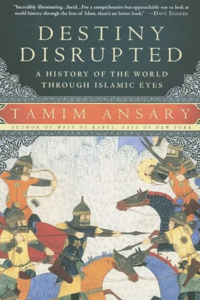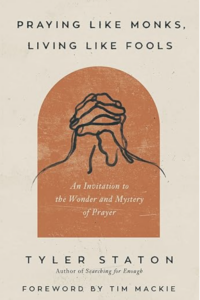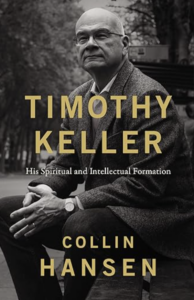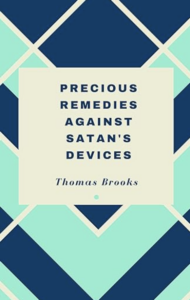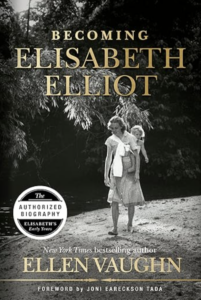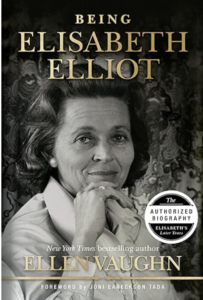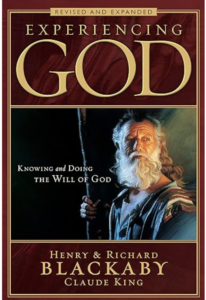Every year, I try to put out a list of the top 10 or so books that I’ve read and would recommend to others. This year leans hard on the “or so” side of things.
I’ve given a few sentences for each book, explaining the benefit I found in them. It’s far short of an actual review, but should give you a decent idea if it’s a book you’d enjoy, too.
Pick one or two up for the new year. And Merry (early) Christmas!
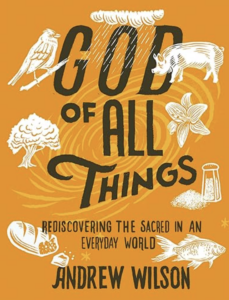 God of All Things, Andrew Wilson
God of All Things, Andrew Wilson
I am recommending two books by Andrew Wilson. He is an author that I have only recently become familiar with. His book God of All Things is a delightful, creative look at different physical images in the Bible that God uses to describe himself, his work in our lives, or aspects of the Christian life. Wilson’s insights are deeply biblical and have really enhanced how I see the physical world. It is also an incredible Bible study on its own, as Wilson truly shows the sacramentalization of nature.
Destiny Disrupted: A History of the World Through Islamic Eyes, Tamim Ansary
Most of us in the West are used to world histories that are presented from the Western perspective, with what happens in and around the Western world comprising the center of history. This book, however, puts Islam at the center and shows you how Muslims look at many of the same events. Ansary tries to be nonpartisan, as he is not really a fully practicing Muslim. But, unsurprisingly, as I’m not a Muslim, there are definitely many perspectives in here with which I would not fully agree. Still, it is a fascinating project.
Praying Like Monks, Living Like Fools, Tyler Staton
This is one of the best devotional books I have read this year. I know that if you’re like me, you probably feel like you’ve read enough prayer books; that everything that needs to be said about prayer has already been said. The issue now is not knowledge but putting it into practice. But Staton’s book was different for me. He really showed me how we encounter the heart of God in prayer, and he used several biblical stories to teach about prayer that I have never considered.
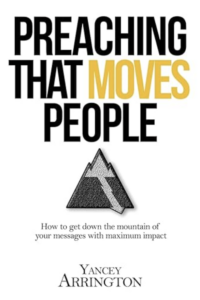 Preaching That Moves People, Yancey Arrington
Preaching That Moves People, Yancey Arrington
This is the preaching book that you desperately needed to read but nobody recommended in seminary. It assumes the theological and exegetical nature of preaching and talks about the craft of putting together a sermon. As Arrington points out, many sermons are theologically and exegetically sound, but they bore people or fail to move them. He helps you understand when it’s time to move on to another point and how to have greater impact by using less and more focused content. The image that guides the whole book is skiing down a mountain. Arrington uses this image to show us how many times when our people need us to “get down the mountain,” we are zig-zagging back and forth instead of picking up a little speed.
Timothy Keller: His Theological and Spiritual Formation, Collin Hansen
This is a well-written biography about one of Christian history’s most important men, probably one of the top three most influential men in my life.
Precious Remedies Against Satan’s Devices, Thomas Brooks
Whether you are in full-time ministry or not, I heartily suggest mixing in a couple Puritan books in your year’s digest of reading. The Puritans had a way of analyzing the intersection of the spiritual realm and the human heart in ways most of us never consider today. This is both a fascinating and heart-revealing book.
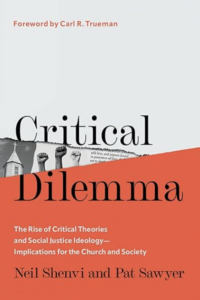 Critical Dilemma, Neil Shenvi and Pat Sawyer
Critical Dilemma, Neil Shenvi and Pat Sawyer
I am delighted to have these two brothers as a part of our church, and this is an excellent, comprehensive purview of Critical Race Theory and its dangers to societal conversations. Shenvi and Sawyer are fair and even charitable with Critical Race Theory, pointing out some of the helpful questions that it has raised. But they are very clear on both its anti-Christian origins and the damage of its (ahem) uncritical applications. If you want to read one book on Critical Race Theory that would catch you up on the discussion and equip you to engage it, I believe this would be that book.
Becoming Elisabeth Elliot and Being Elisabeth Elliot, Ellen Vaughn
Elisabeth Elliot is one of my all-time favorite heroes. These books not only inspired me, but they humanized her in a way that the evangelical world desperately needs to understand. Some things in them I found disappointing and some things quite disturbing. But even as I came to reckon with Elliot’s shortcomings, the profound things her life stood for—absolute commitment to the Great Commission, trust in the sovereign wisdom of God, and obedience above all—showed through these books in both her most virtuous moments and her weakest ones.
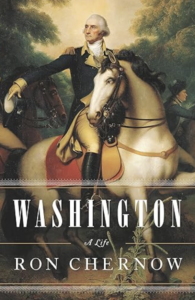 Washington: A Life, Ron Chernow
Washington: A Life, Ron Chernow
This was just a marvelous book that humanized a mythic figure in American history. While Chernow puts you face to face with Washington’s shortcomings, showing that he was above all just a real man, you still sense in his life and dedication the reason why he has become, and deserves to be, an American hero. At the end of the day, he won the Revolutionary War not by brilliance as a general but by refusing to ever give up. He kept showing up until there was no one left on the field. I was inspired by his life to just never, ever, ever give up. You win by continuing to show up day by day, being faithful again and again—or, to quote the Nietzsche phrase playfully used by Eugene Peterson, showing “a long obedience in the same direction.”
Experiencing God, Henry Blackaby
This year I made the decision to reread a couple of the books that God used when he first called me into ministry. One of the first of those was Experiencing God by Henry Blackaby. There is so much that I could say about this book. It is not perfect, but it reignited within me an awareness that real ministry is done when you see God going first and you join him in what he is doing. It sharpened my vision and renewed my passion for following Jesus and letting him work through me, rather than me working for him.
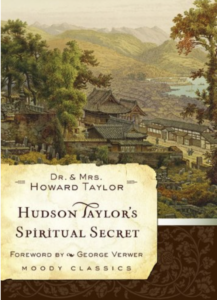 Hudson Taylor’s Spiritual Secret, Dr. and Mrs. Howard Taylor
Hudson Taylor’s Spiritual Secret, Dr. and Mrs. Howard Taylor
This is another one of the books I read in college that totally shaped me. Hudson Taylor’s commitment to obedience, like Elliot’s, is something we don’t talk about much anymore. But the real treasure of this book was Hudson Taylor’s “spiritual secret,” which is that the Christian life is not about us for Christ but Christ in you. This book pairs well with Experiencing God. I am so glad that I read it early in my ministry.
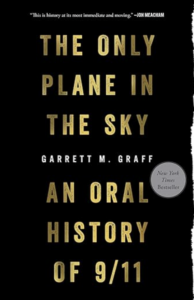 The Only Plane in the Sky, Garrett M. Graff
The Only Plane in the Sky, Garrett M. Graff
This is a dramatic retelling of what happened on 9/11 that jumps around between a couple hundred people who lived through the events. You get to experience it all in real time, with the confusion and emotions that these people lived with. It is heart-wrenching, devastating, inspiring, and fascinating.
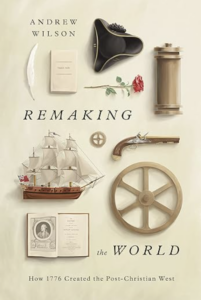 Remaking the World: How 1776 Created the Post-Christian West, Andrew Wilson
Remaking the World: How 1776 Created the Post-Christian West, Andrew Wilson
This is the second book by Andrew Wilson. I told Wilson after reading God of All Things that I am his biggest fan. After reading this one, I secretly hate him, because it is not fair that any one person be that knowledgeable about that many things. Wilson shows how a series of things that occurred in 1776 (only one of which was the American Revolution!) inform and explain the dialogues we have today about Christian witness in the world. He demonstrates a thorough knowledge of philosophical developments, historical trends, and the unspoken assumptions that shape much of how we talk and think today.
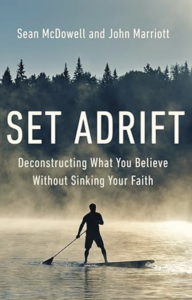 Set Adrift, Sean McDowell and John Marriott
Set Adrift, Sean McDowell and John Marriott
This is a great book on what deconstruction is, why people go into it, what the good and redeeming elements are in it, and how to avoid destroying your faith in the midst of legitimate questions.
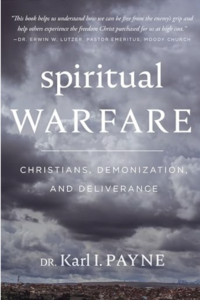 Spiritual Warfare, Karl Payne
Spiritual Warfare, Karl Payne
This was the first book I read during the sabbatical weeks I took off in October. While the book is a bit redundant and some chapters are not helpful, his general paradigm of understanding spiritual warfare as seeing Satan trying to “gain place” in the rooms of the house of your life was extremely helpful. I shared much of what I learned from this book with my church, and many people have told me that they are now seeing their lives through an entirely different lens.
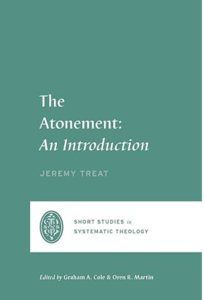 The Atonement: An Introduction, Jeremy Treat
The Atonement: An Introduction, Jeremy Treat
I love, love, love books about the gospel, and this one takes you deep into the cross, showing how we often reduce it from its inherent glory and magnificence. Dr. Treat is both a great pastor and theologian, and this book is scholarly, faithful, and devotional.
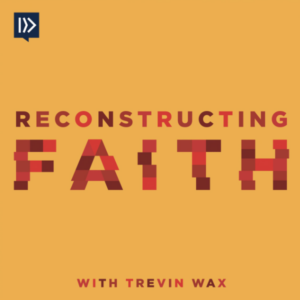 Reconstructing Faith: Seasons 1–2, Trevin Wax
Reconstructing Faith: Seasons 1–2, Trevin Wax
I decided to put one podcast series on here. My friend Trevin talks about the trend of deconstruction and what is legitimate in it. He then goes subject by subject to show you where the state of the discussion is related to things like sex, gender, masculinity, Christian institutions, the crisis of authority, and other things pertaining to Christian witness. It is like a two-season-full seminary course. I encouraged everyone on our staff and in The Summit Collaborative to pay close attention to this podcast. It is a great listen.
